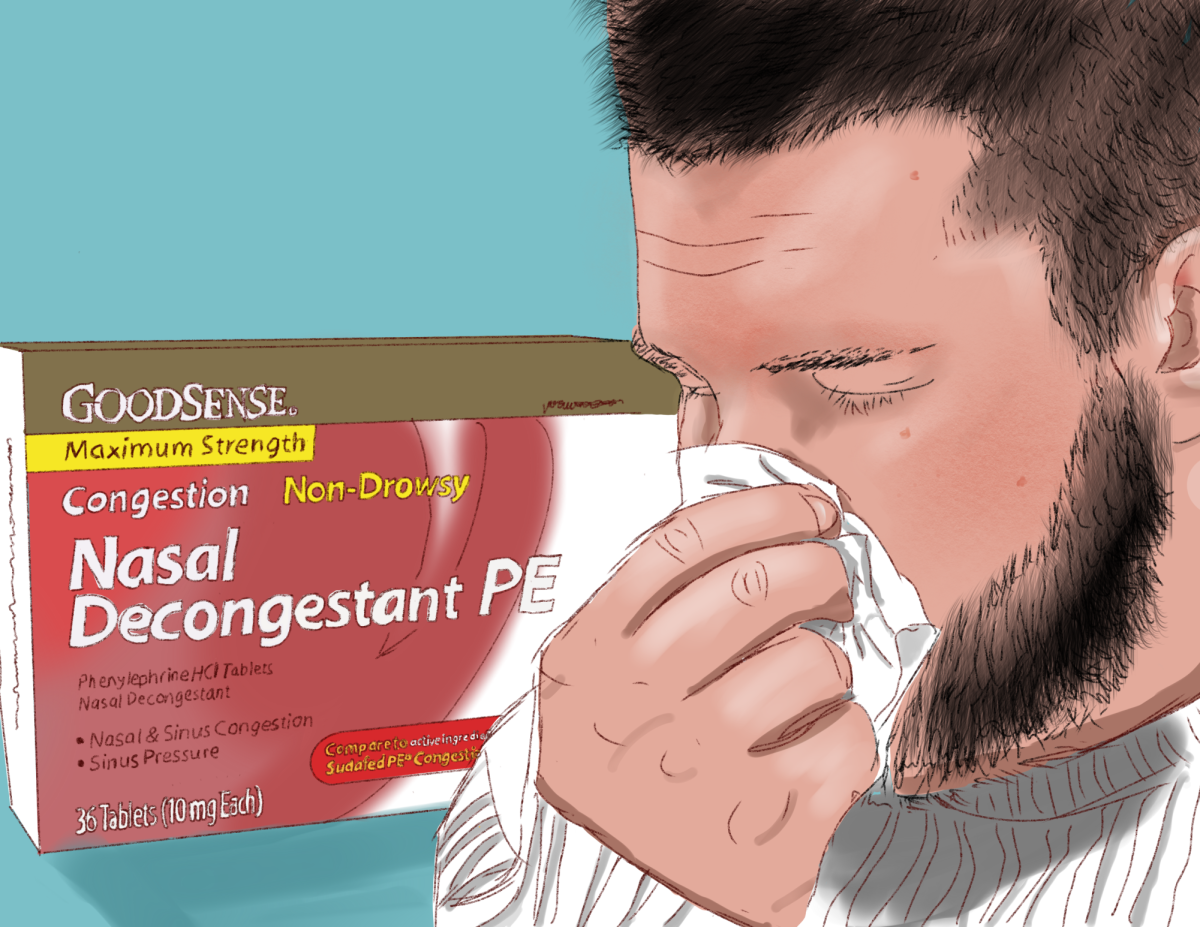With the incoming flu season, people all over the world are starting to develop symptoms of pounding headaches, congestion and severe fatigue. And because many people are reluctant to take a day off work or school, they choose to pop a cough drop, wear a mask and take a decongestant on the way out of the house.
But that decongestant may not do the trick. The Food and Drug Administration released an official statement in September saying phenylephrine, a key ingredient in most over-the-counter decongestants, is no better than a placebo when it comes to helping cold and flu symptoms.
According to Stanford Clinical Assistant Professor of Medicine Jake Scott, phenylephrine was intended to reduce nasal passage swelling by stimulating receptors in the arteries, which would cause less mucus to drain from tissues into the nose. However, when taken orally, the drug does not end up reaching the bloodstream.
“Less than 1% of it is absorbed at the doses that are recommended,” Scott said.
Stanford Professor of Medicine Dean Winslow said research shows that oral phenylephrine-based drugs may work in some people but only through the placebo effect, which occurs when the belief that an item is helpful is enough to have the brain replicate an effect similar to one that it is supposed to have.
Winslow also said nasal sprays that contain phenylephrine yield short term results, but the congestion worsens once the spray wears off.
“When you spray it nasally, the problem is that you get this rebound, increasing congestion, so it really doesn’t work that well,” Winslow said.
Phenylephrine has become frequently used in over-the-counter cold and flu medicine since a useful decongestant, pseudoephedrine, was banned from being sold over the counter in March of 2006 because of its use in producing homemade methamphetamine. According to Winslow and Scott, despite its ineffectiveness being common knowledge in the medical community for years, it took until now for the FDA to officially say it.
So why were companies able to get away with using phenylephrine for so long? Winslow said it’s because the drug was approved through the use of monographs, papers often written by the very companies that marketed the drug.
“You have to do what’s called a prospective, randomized, controlled trial,” Winslow said. “In other words, you blind the patient and the doctor to whether they’re getting the actual medicine versus the placebo, a sugar pill, and then you test it and see if the symptoms are different between the two groups.”
Scott said the FDA began tightening its drug validation process in 2007, but the massive backlog of drugs to test resulted in previously approved drugs slipping through the validation process. Phenylephrine was one of them.
“It’s never really been tested in any kind of randomized controlled trial,” Scott said.
And while the FDA allows drugs to be marketed by giving them a status of Generally Recognized as Safe and Effective, or GRASE, and while the FDA has now come out publicly saying phenylephrine is basically useless as a cold medicine, the FDA has not yet withdrawn phenylephrine’s status as a GRASE drug. Scott said, “In the future, the FDA should try to act quicker to ensure that medications that are being marketed as beneficial are actually proven to be beneficial, not just safe.”
Key Ingredient in Most Decongestants Ineffective
Story continues below advertisement
0
Donate to The Campanile
$250
$1000
Contributed
Our Goal
Your donation will support the student journalists of Palo Alto High School's newspaper
About the Contributor

Lea Kwan, Staff Writer

